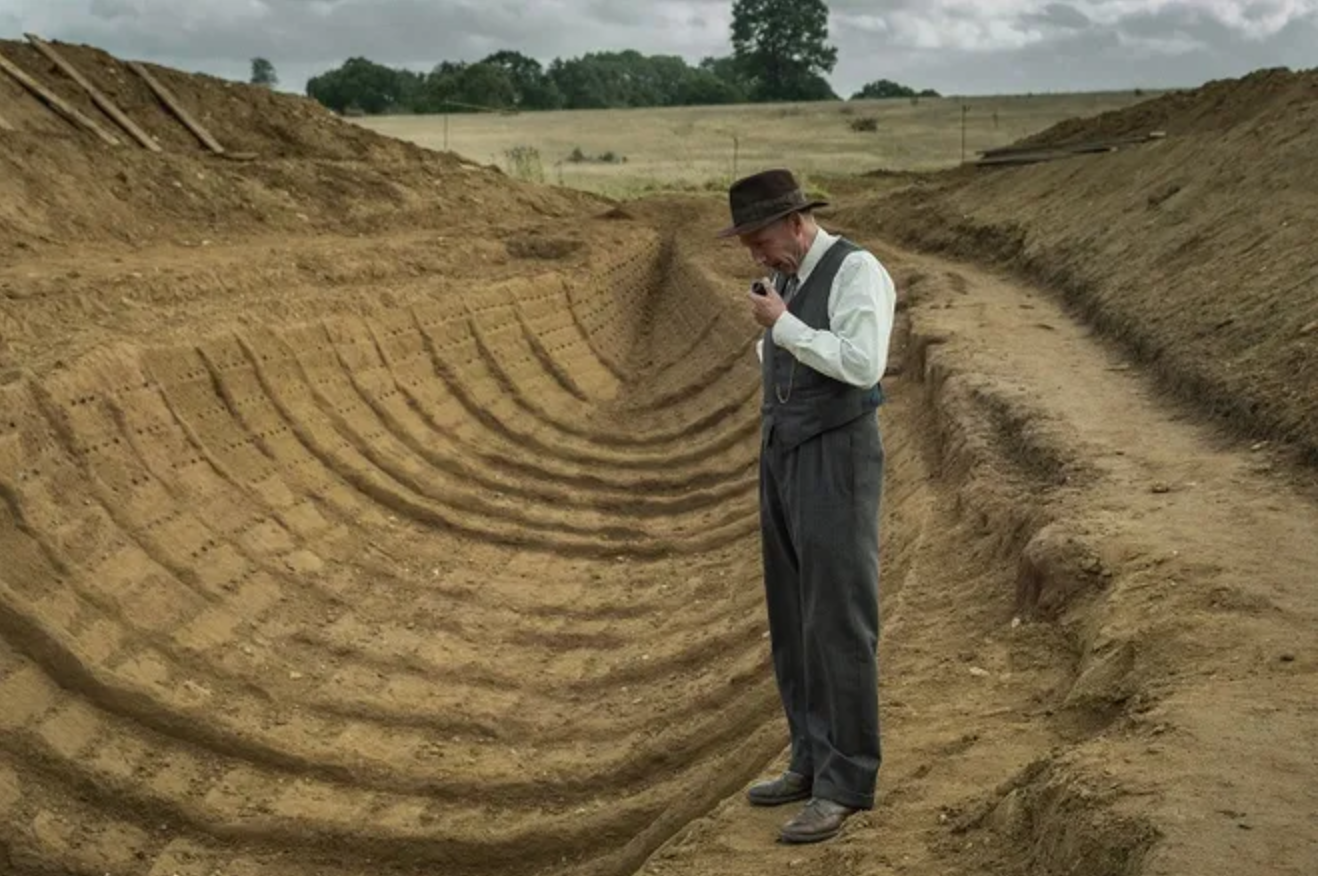THE DIG
Directing: B
Acting: B+
Writing: B
Cinematography: B+
Editing: B
The Dig is pleasant enough. Certainly more so than the title might suggest, but that’s a direct reference to the literal story at hand, a “reimagining” of the 1939 archeological excavation at Sutton Hoo in Suffolk, England. It’s based on the 2007 novel of the same name by John Preston, which reportedly takes plenty of historical license on its own.
I’m a little mystified as to how or why “reimagining” this story would be necessary. Is the true story itself not interesting enough? We’re talking about the discovery of early medieval burials dating back to the 6th and 7th centuries. Maybe the real-life discovery did not feature enough drama? (Or romance, as a subplot of this film might needlessly suggest.) Something tells me a straight-up documentary about this subject might be more sustainably compelling.
Instead, in The Dig, we get a film with a fair amount in common with Ammonite—a better film—in that it takes a historical event and then throws in inexplicably fictionalized details. To be somewhat fair to The Dig, Nicole Kidman was first cast as Edith Pretty, the woman on whose land the discovery was made, and Kidman was a far more age-appopriate choice, being 53 years old, and Pretty was 56 at the time of the discovery. Kidman had to bow out due to scheduling conflicts, and was replaced by the always-reliable Carey Mulligan—except, of course, Mulligan is 34 here.
One could argue I am nitpicking, but things get muddled when we’re meant to feel we’re being told a true story—which The Dig never claims to be. In which case, I have the same question I had with Ammonite: why do it this way then? Feature real-life historical figures as fictionalized characters? Would it not work better just to tell a fully fictionalized story “inspired by” the thing that actually happened? Otherwise there is an effect that is ultimately bemusing at best.
Setting all that aside, The Dig is well-acted, with some memorably pretty cinematography by Mike Eley, although its excessive use of handheld cameras and bright beams of sunlight are very reminiscent of Terrence Malick films. As a result it has an almost ethereal aesthetic quality, which makes for a pleasant viewing experience but I’m not certain quite fits the story.
Edith Pretty hires an excavator (Ralph Fiennes) to uncovver the mysteries under large mounds of dirt discovered on her land; ultimately a huge ship full of artifacts, having been dragged inland from a nearby river, is discovered under one of them. It is nice that Pretty and Basil Brown’s relationship, being the central relationship in the story, always remains platonic, serving somewhat more as an example of people connecting across class divides. What doesn’t work as well is the choice to include a romantic sub-plot, almost to make up for it. Pretty’s cousin Rory (Johnny Flynn) is invited over to assist Basil with the excavation, and in turn Rory discovers an attraction to Peggy (Lily James), the married wife of one of the Cambridge archeology team who arrives to take over once they realize the national significance of the find.
And, here we go again: Peggy Piggott was a real person; Rory Lomax was not. Focusing on their romance with the archeological find as the backdrop, but with Peggy also fictionalized, might have also made The Dig a better movie. Not to say that there has to be any romance for the story to be compelling, but with it relegated to an ultimately irrelevant subplot, The Dig is left unable to figure out exactly what genre of movie it wants to be.
The story is otherwise entirely plausible, at least, and it is interesting to learn of the historical context of this particular excavation in British history. Carey Mulligan and Ralph Fiennes are both consummate performers and as such keep the story from ever sagging under any dullness the film might have had otherwise. They both have a comforting, familiar screen presence, playing decent people doing decent things. You could certainly do worse.
Ralph Fiennes waits for his ship to come in.
Overall: B

